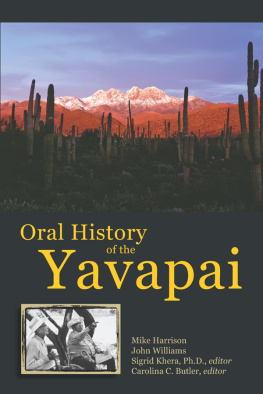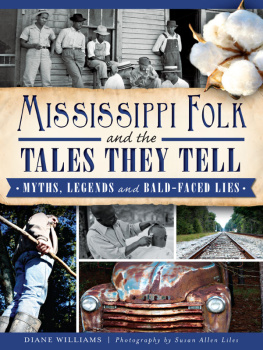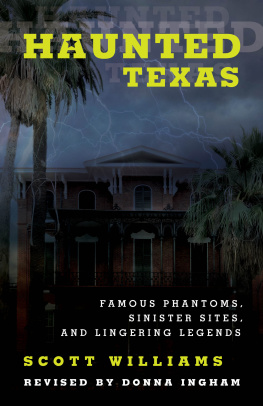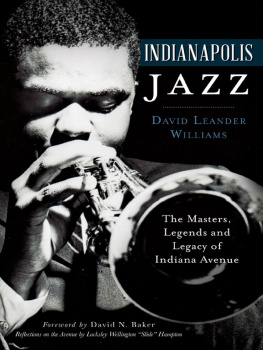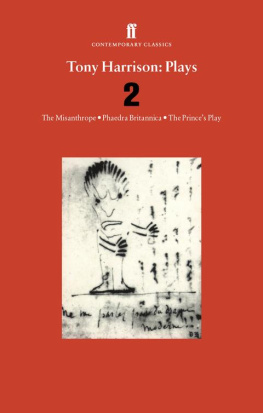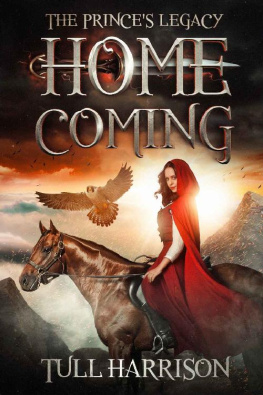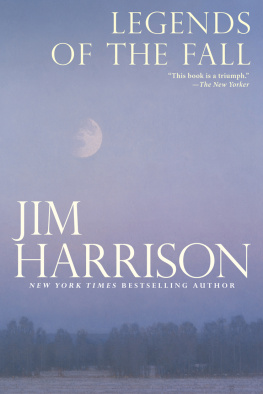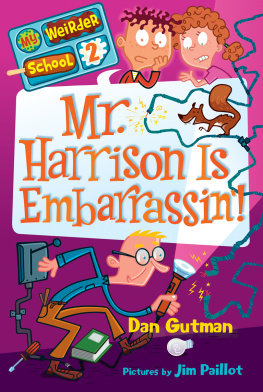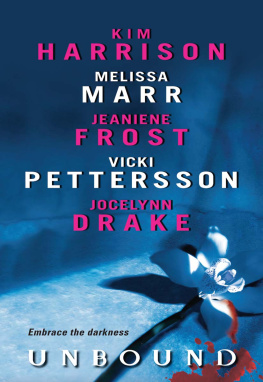PREFACE
Table of Contents
Many causes have contributed to the great upsurge of interest now manifesting itself in Virginia's romantic history and in the men and women who made it. If, perhaps, the greatest and most potent of these forces is the splendid restoration of Williamsburg, her colonial capital, through the munificence of Mr. John D. Rockefeller, Jr., of New York, we must not lose sight of the part played by the reconstruction of her old historic highways and their tributary roads into the fine modern highway system which is today the Commonwealth's boast and pride; the systematic and constructive activities of the Virginia Commission of Conservation and Development of which the present chairman is the Hon. Wilbur C. Hall of Loudoun; and the excellent work done by the Garden Club of Virginia in holding its annual Garden Week celebration in each spring and the generous permission it obtains, from so many of the present owners of Virginia's historic old homes and gardens, for the public to visit and inspect them at that time and thus capture, if but for the moment, a sense of personal unity with Virginia's glamourous past.
The increasing flow of visitors to Loudoun and to Leesburg, its county seat, has developed a steadily growing demand for more information concerning the County's past and its charming old homes than has been available in readily accessible form. These visitors, in their quest, usually call at Leesburg's beautiful Thomas Balch Library which, during Garden Week, lends its facilities to Virginia's Garden Clubs for their Loudoun headquarters; and Miss Rebecca Harrison, its Librarian, has upon occasion found the lack of published information in convenient form somewhat a handicap in her always gracious efforts to welcome and inform our growing tide of visitors. Knowing as she did my lifelong interest in Colonial history and the lives and family stories of the men and women who enacted their parts therein (my sole qualification, if such in charity it may be called, for such a task) she, from time to time, had suggested that I prepare a book upon Loudoun, the people who built up the County and the old homes which they erected and in which they lived. The present volume has been written in an effort to respond to those requests. When some four years ago the work was contemplated, it was proposed to make it primarily a small, informal guidebook to Loudoun's older homes; but as my research into her earlier days progressed, I became deeply conscious that the people of Loudoun have forgotten much of her past that tenaciously and loyally should be remembered; and so the story of the County almost crowded out, beyond expectation, the story of the homes. It is hoped that, sometime in the future, another book pertaining wholly to these old plantations and their owners may be prepared and published.
Although there has been no very recent book devoted to her history, Loudoun has had her historians within and without her boundaries and, above all, has been fortunate in attracting the interest of that outstanding scholar and historian of the Northern Neck, the late Fairfax Harrison, Esq., whose beautiful country-seat of Belvoir is near by in the adjoining county of Fauquier. As the most casual reader of the following pages will quickly recognize, I have been under constant obligation, in the preparation of this work, to these earlier writers and can but here sincerely acknowledge the help I have derived from them.
The first published history of Loudoun was written by Yardley Taylor, a Quaker of the upper country, prior to 1853 in which year it made its printed appearance. With it was published a map of the County prepared by him (for his vocation was that of a land-surveyor) and both map and book are highly creditable to their author. The book, however, is not very large and, concerning itself somewhat extensively with the topography, geology, etc. of the County, it has less to say of Loudoun's history than its admirers could wish. The map, embellished with cartouches of old buildings, was the first county map to be prepared in this part of Virginia and so accurate was it found to be that it was used by both Federals and Confederates in the devastating War Between the States. That war, with its aftermath, set back the cultural activities of Virginia for a full generation; thus it was not until 1909 that the next Loudoun history appears, this time by Mr. James W. Head of Leesburg. His volume is more comprehensive than Mr. Taylor's but, again, it covers far more than the County's history, including carefully prepared surveys of its minerals, soils, farm statistics, commercial activities, and many other interesting and closely related subjects. In 1926 Messrs. Patrick A. Deck and Henry Heaton published their Economic and Social Survey of Loudoun County which is somewhat similar in its scope to the work of Mr. Head but not so large a volume. In the meanwhile, however, in 1924, Mr. Fairfax Harrison, himself a scion of the Fairfax family, had privately published his comprehensive Landmarks of Old Prince William covering the early history of all the territory originally comprised in old Prince William County; and thereby built an enduring monument to his own erudition and industry that will stand as long as there remains a man or woman who retains an interest in the fairest part of the princely Colepeper-Fairfax Proprietary. It remains a pleasant and grateful memory that I had the benefit of Mr. Harrison's personal suggestions and advice, as well as access to the overflowing treasury of his published writings, in my preparation of this volume.
In addition to the authors named, much help was derived from Mr. John Alexander Binns' treatise on his agricultural experiments, from the war-books of Major General Henry Lee, Col. John S. Mosby, Col. E. V. White, Rev. J. J. Williamson, Captain F. M. Myers and Mr. Briscoe Goodhart, although in the case of the two latter authors their writings are measurably impaired by the rancour which controlled their pens. Dr. E. G. Swem's Virginia Historical Index was of constant assistance as were the publications of the Virginia Historical Society, those of the College of William and Mary and similar historical magazines as well as Virginia's Colonial records and the records of Loudoun County. The resources of the Library of Congress, the Smithsonian Institution and those of our little Thomas Balch Library in Leesburg have all been available to me. In short, I had intended to append a bibliography of volumes consulted and relied upon for many of the views hereafter expressed; but when those volumes grew in number to five or six hundred I realized that limited space would permit no such project. Therefore I have contented myself with frequently indicating in footnotes the principal sources from which my information has been derived.
To my acknowledgment of aid obtained from books, pamphlets, newspapers and magazines, official records and documents, must be added my appreciation of the help of many friends. Mr. Thomas M. Fendall of Morrisworth and Leesburg, of distinguished Virginia background himself, has made such careful and comprehensive studies of Loudoun's past that he was and is the logical prospective author of a book thereon; but his modesty equals his industry and scholarship to the very obvious loss, in this instance, to the County and its people. From him I have had such constant and constructive assistance and cheerful response to my frequent appeals that without his aid this book could not have attained its present form. To Loudoun's present County Clerk Mr. Edward O. Russell and to his deputy Miss Nellie Hammerley; to Mrs. John Mason; Mrs. E. B. White and Miss Elizabeth White of Selma; Mrs. Frederick Page; the Rev. G. Peyton Craighill, the present Rector of Shelburne Parish; the Rev. J. S. Montgomery; Miss Lilias Janney; Judge and Mrs. J. R. H. Alexander of Springwood; Mrs. Ashby Chancellor; Mrs. John D. Moore; Mr. Frank C. Littleton of Oak Hill, and his long studies of the history of that estate and of President Monroe; Trial Justice William A. Metzger; Mr. J. Ross Lintner, Loudoun's County Agent; Hon. Charles F. Harrison, Commonwealth's Attorney; Mr. Oscar L. Emerick, Superintendent of Schools, for permission to use the map of the County prepared by him; Mr. E. Marshall Rust; Mr. George Carter; Hon. Wilbur C. Hall and his efficient official staff; Mr. Valta Palma, Curator of the Rare Book Collection of the Library of Congress, and Mr. Hirst Milhollen of the Fine Arts Division of the same great institution; Mr. John T. Loomis, Managing Director of Loudermilk and Co. of Washington, as well as to very many others, my sincere thanks are again tendered for the valuable help they all so willingly have given me.




